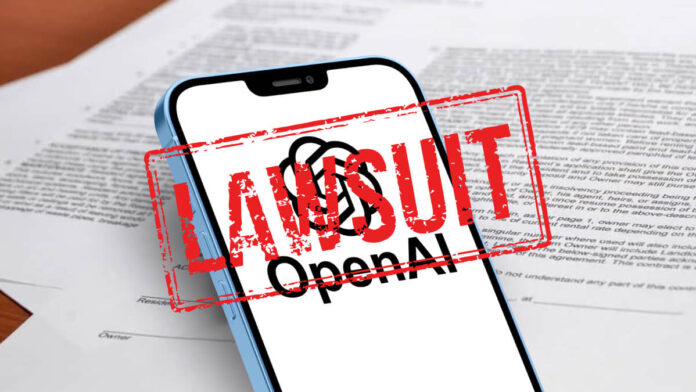In a significant legal development, three prominent news outlets—The Intercept, Raw Story, and AlterNet—have collectively filed openai lawsuit copyright, alleging copyright infringement. The lawsuits, filed in the Southern District of New York, claim that OpenAI and Microsoft intentionally removed crucial copyright information from the training data used for AI models, specifically the ChatGPT chatbot.
Allegations
The core of the lawsuits revolves around the accusation that ChatGPT, developed by OpenAI and powered by Microsoft, frequently reproduces copyrighted journalistic works without including essential information such as author, title, copyright, or terms of use. The publications argue that had the training data retained this information, the AI model would have incorporated it into its responses.
Legal Representation
All three cases are being handled by the same law firm, ensuring a consolidated legal approach in addressing the alleged copyright infringement by OpenAI and Microsoft. This openai lawsuit copyright matter highlights the concerted effort by the news outlets to address their concerns through a unified legal strategy.
Related: OpenAI Accuses New York Times for Hacking ChatGPT in US Court
Specific Lawsuits
1. The Intercept Lawsuit
The Intercept contends that ChatGPT, at least some of the time, reproduces copyrighted works without providing due credit. The lawsuit also implicates Microsoft, as the technology giant has developed its chatbot named Bing, allegedly using the same copyrighted information.
2. Raw Story and AlterNet Lawsuit
Both Raw Story and AlterNet take the legal action a step further, asserting that OpenAI and Microsoft were aware that ChatGPT might face reduced popularity and generate less revenue if users believed its responses violated third-party copyrights. Additionally, these publications highlight that OpenAI offers an opt-out system for website owners to block content from its web crawlers, indicating an awareness of potential copyright concerns.
Previous Legal Context
This is not the first time OpenAI has faced copyright-related legal challenges. A previous case in California involved comedian Sarah Silverman and other authors, accusing OpenAI of intentionally removing copyright information from their written work during model training. While a judge dismissed the claim of intentional removal, the broader allegation of copyright violation remains.
Industry-Wide Impact
The lawsuits against OpenAI and Microsoft come at a time when the use of artificial intelligence in content generation faces increasing scrutiny. Concerns about unauthorized use of copyrighted works to train AI algorithms have prompted legal actions from various sectors, including Hollywood actors and writers, as well as news organizations.
Response from OpenAI and Microsoft
As of now, there is no official response from OpenAI or Microsoft regarding the recent lawsuits. However, both companies have previously expressed a commitment to working with publishers and ensuring that they benefit from AI advancements without compromising copyright protections.
Conclusion
The legal actions taken by The Intercept, Raw Story, and AlterNet underscore the growing tension between news outlets and technology companies over the use of journalistic content in AI training. The outcomes of these lawsuits could significantly influence the practices of AI developers and their approaches to respecting copyright and intellectual property rights in the future. The intersection of technology, copyright law, and journalism continues to be a complex battleground with implications for the broader landscape of artificial intelligence development.


